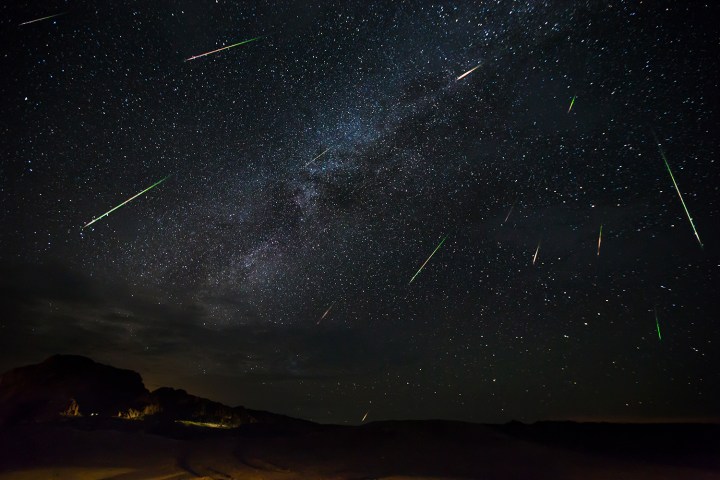
Who says you have to wait around for a meteor shower? Certainly not ALE Co., a Tokyo-based startup that wants you to wish upon a shooting star anytime you’d like. The company is looking to develop a system that would offer paying customers “shooting stars on demand,” and as per a report by Japan Times, the first man-made meteor shower in the history of the world could take place in just two years.
The system depends upon two satellites, both of which are currently being developed. The first should be launched into orbit in March 2019, while its sibling would take flight sometime next summer. Each satellite will carry around 400 tiny spheres, each of which contain a proprietary chemical formula that would mimic falling stars in the sky. Think of them, in some ways, as extraterrestrial fireworks. Each of the little spheres could be reused, which means that they could be repurposed for between 20 and 30 artificial shooting star shows.
The satellites purportedly have a lifespan of around 24 months, and would be programmed to send the tiny fireworks flying in the right place, speed, and direction in order to achieve visible illumination even over an extremely crowded metropolitan area (think Tokyo or New York City). And because they would be shot out in space, millions of viewers could be able to enjoy the show from their own homes, ALE claims.
“We are targeting the whole world, as our stockpile of shooting stars will be in space and can be delivered across the world,” ALE CEO Lena Okajami told reporters.
Should all systems continue to operate smoothly during these planning and production phases, both satellites could be in place by February 2020, and an initial test run could be ready to go later in the spring. That means we’ve less than two years to think of all of our most pressing desires and make as many wishes as possible.
The first test is slated to take place over Hiroshima, which was chosen thanks to its weather, landscape, and cultural background, the company said. It’s unclear exactly how much you’ll have to pay in order to order a meteor shower of your own. The initial tests have a budget of $20 million, which includes the cost of launching a pair of satellites.
Editors' Recommendations
- Paramount is planning to film Star Trek 4 later this year
- Disney makes it official: Star Wars Celebration 2020 is canceled
- Did Han or Greedo shoot first? New Disney+ edit of Star Wars makes it less clear


